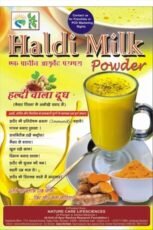Vitamin C for immunity against NCDs
Tuesday March 22, 2022 at 6:41 pmThe covid-19 pandemic has drawn renewed attention to the health and Healthcare sector worldwide. While public awareness about viral diseases, their nature, and preventive measures to avoid catching them are being discussed like never before, similar enthusiasm is missing got non-communicable diseases (NCDs). Several non-communicable diseases are far easier to avoid than covid-19 diseases and only need dietary changes such as adding essential vitamins and minerals, and vitamin C is one such nutrient.
Health experts claim that it is vital for patients with non-communicable diseases (NCDs) like hypertension or diabetes, as it can prevent end-organ damage and improve vascular function.
The prevalence of non-communicable diseases (NCDs) in India is alarming, with morbidity increasing by a starking 83 percent in the last three decades. Cardiovascular diseases, respiratory diseases, cancer, and diabetes, form the leading non-communicable diseases (NCDs) affecting Indians, and they are associated with the highest mortality rates. Two-thirds of Indians that are affected by these non-communicable diseases (NCDs) fall in the middle age group, that is, from 26 to 59 years, as per a 2021 ASSOCHAM report. That is the most productive age group economically speaking. Of these diseases, diabetes and hypertension are found to have exceptionally high associated burdens while also having a prevalence of about 2.9 percent cent and 3.6 percent, respectively, across India.
Dr. Deepak Talwar, the director & chair at pulmonary sleep and critical care of Metro Centre for Respiratory Diseases in Noida, asserted the importance of vitamin C in these words, “Vitamin C is an essential nutrient to boost immunity. It is observed that patients with common NCDs, like diabetes and hypertension, require more vitamin C than others, owing to the high oxidative stress seen in these patients. Specifically, patients with diabetes have 30 percent lower vitamin C concentrations than non-diabetics. Individuals can boost their regular nutritional intake through vitamin C supplementation and a rich, balanced diet, comprising citrus foods and tomatoes.”
Dr. Parag Sheth, director of global medical affairs at Abbott, claimed, “Vitamin C offers impressive health benefits, such as boosting immunity and antioxidant levels. Abbott is committed to raising awareness on the importance of vitamin C, thereby encouraging adequate daily intake, which can benefit immunity and promotes overall health and well-being. By providing trusted, quality solutions to meet specific local needs, we aim to help people benefit from good health and live better fuller lives.”
Vitamin C, which is found in several citric fruits, is unfortunately not consumed enough in the country. Its deficiency has been observed across India, with an estimated 74 percent and 46 percent prevalence amongst North India and South India adults. The deficiency is commonly observed in people suffering from non-communicable diseases (NCDs). The deficiency results in lower immunity levels, leaving people with non-communicable diseases (NCDs) unable to manage their conditions. Common risk factors for vitamin C deficiency include:
- Increased age (specifically in the geriatric population.
- High exposure to pollution or pollutants like smoke and biomass fuels and high tobacco usage
Most of these commonly affect Indians.
Besides fighting non-communicable diseases (NCDs), Vitamin C also plays a vital role in alleviating seasonal infections, like cold and flu, during the winter season, especially in people suffering from non-communicable diseases (NCDs). In cardiovascular diseases or hypertension patients, in particular, it can protect end-organ damage and improve the vascular endothelial function, which can help in regulating blood clotting.
Vitamin C supplementation is likely to be beneficial to ensure adequate intake of this vital micronutrient and benefit from its several positive outcomes on a person’s overall health. One can easily fulfil one’s vitamin C needs by eating citric fruits like orange.



















































